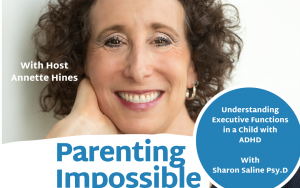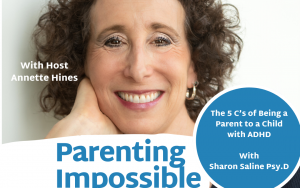 This new “normal” isn’t anything we’re accustomed to. With school closures, social distancing, working from home, job lay-offs and 24/7 family time, everybody is making huge adjustments to the massive disruption wrought by COVID-19. While we adults struggle to wrap our brains around these changes, it’s even harder for children and teens who may or may not understand why they are home. Managing uncertainty with your family during COVID-19 will likely be a continuous process for quite some time. Take time to get familiar with anxiety-reducing practices, and make a habit of family check-ins so you all can feel the support from one another during this difficult experience. Kids and teens are now separated from friends, family and familiar activities like school, sports, music, drama, etc. They feel ripped off and, frankly, lack a sense of control about their lives. And then there’s the worry. Daily news reports increase our anxiety. We’re concerned for our loved ones while simultaneously feeling helpless to protect them and ourselves. Many of us are living more anxiety than we are accustomed to and it’s not a particularly pretty picture. And yet, human beings have built-in hope and fortitude. We have all been through challenging times in our lives (perhaps not to this extent) and survived. I’m convinced we will survive this too–although the timeline may take longer than any of us anticipated. How can we apply our resilience from the past struggles to help us in this moment? How can we assist our family in managing their uncertainty along with their disappointment, frustration and loneliness?
This new “normal” isn’t anything we’re accustomed to. With school closures, social distancing, working from home, job lay-offs and 24/7 family time, everybody is making huge adjustments to the massive disruption wrought by COVID-19. While we adults struggle to wrap our brains around these changes, it’s even harder for children and teens who may or may not understand why they are home. Managing uncertainty with your family during COVID-19 will likely be a continuous process for quite some time. Take time to get familiar with anxiety-reducing practices, and make a habit of family check-ins so you all can feel the support from one another during this difficult experience. Kids and teens are now separated from friends, family and familiar activities like school, sports, music, drama, etc. They feel ripped off and, frankly, lack a sense of control about their lives. And then there’s the worry. Daily news reports increase our anxiety. We’re concerned for our loved ones while simultaneously feeling helpless to protect them and ourselves. Many of us are living more anxiety than we are accustomed to and it’s not a particularly pretty picture. And yet, human beings have built-in hope and fortitude. We have all been through challenging times in our lives (perhaps not to this extent) and survived. I’m convinced we will survive this too–although the timeline may take longer than any of us anticipated. How can we apply our resilience from the past struggles to help us in this moment? How can we assist our family in managing their uncertainty along with their disappointment, frustration and loneliness?
Getting to the root of anxiety, and how best to approach it.
 Anxiety comes from wanting safety and security and being unsure that they will occur. It wants to make uncomfortable feelings go away and, right now, that’s not really possible. When it comes to managing uncertainty with your family, you don’t want to dismiss your children’s anxiety. Instead, you want to respond to it in ways that are healthy, while managing your own worries, too.
Anxiety comes from wanting safety and security and being unsure that they will occur. It wants to make uncomfortable feelings go away and, right now, that’s not really possible. When it comes to managing uncertainty with your family, you don’t want to dismiss your children’s anxiety. Instead, you want to respond to it in ways that are healthy, while managing your own worries, too.
Avoiding anxiety, or pushing it aside, only makes it stronger. Attempting to resolve each worry is like playing a game of Whack-a-mole: once one worry is gone, another will pop up in its place. Instead, this is the time to take a step back and examine how your child’s anxiety operates by focusing on the way it works—the process and not the content.
Managing uncertainty and anxiety with your family by using the 3 R’s:
Reflect, Recognize & Reset.
Instead of minimizing your kids’ feelings, or trying to get rid of them by saying things like, “Don’t worry, we’ll be fine” or, “You can still talk to your friends on social media,” acknowledge how they are feeling. Offer them tools to tolerate the discomfort of their emotions.
Offer these words instead: “Of course you’re disappointed and angry that graduation may be cancelled. It’s terribly sad.” Or, “Of course you’re missing your friends and hanging out. It’s lonely not seeing them in person.”
You are listening compassionately and reflecting back what you hear. Since you can’t make this situation go away, you acknowledge its reality and how your son or daughter is affected by it. You validate their issues and recognize any patterns.
Then, you figure out together what is the next right thing to do to move forward. This is a collaborative process based on brainstorming and, if the well runs dry, a few suggestions based on their interests. You help them reset in a moment when they’re lost or overwhelmed or frustrated.
Building resiliency: The other crucial piece to dealing successfully with uncertainty.
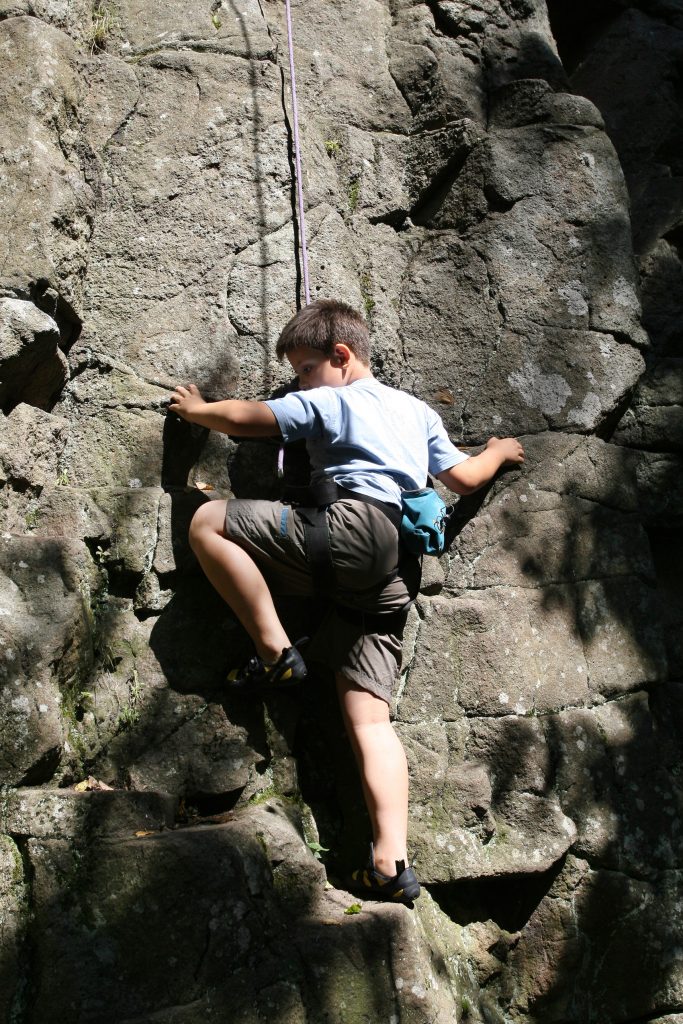
Anxiety is very skilled at causing amnesia about memories of past successes—times when your child or teens faced a fear and overcame the obstacle. To build confidence in the ability to tackle and survive tough times, and the unknown, kids need reminders of their previous achievements. You’re accessing and fostering their inner resilience as you recall together those moments when you’ve seen them recover from obstacles. Write some of these down and post them in the kitchen. Consider doing this for yourself, too.
5 steps for managing uncertainty and anxiety with your family during COVID-19:
When we are worried, we are tense. Kids feel our stress and it increases their own anxiety. Follow these steps to reduce your family’s stress and anxiety.
1. Name the anxiety.
It’s easier to band together to fight the worry monsters that are invading our homes if we identify them. “Oh, there’s Donald Downer, making everyone feel scared again” or, “Here’s Fantasy Fred, imagining the worst.” Consider making a family drawing or writing a funny song about the effect of anxiety in your lives. Enlist your teen’s assistance. Managing uncertainty with your family takes teamwork, and your kids are likely to have some creative ideas and insights, regardless of their protesting.
2. Be honest, without over-sharing.
It’s okay to share a sanitized version of some of your concerns without going into the details. There’s a big difference between, “Yes, I think about Grandma and Grandpa too and wish we could visit them,” and, “I’m so worried about my parents and how they are managing. I don’t want them to get sick and die.”
Be careful about how you discuss your own anxiety within your child’s earshot: little pitchers do have big ears. Try to avoid talking about how much you want an extra glass of wine to soothe your nerves. While that may well be true, you’re also conveying to your kids that self-medicating is a coping tool. That’s not the message we want them to learn.
3. Offer daily kindnesses.

Make a family agreement to do something nice for one person each day. Brainstorm some suggestions together and write these down as reminders. This creates positive plans that are helpful when managing uncertainty with your family. If someone can’t think of anything, you can refer them to the list. Before bed, ask your kids what they did that day or perhaps share these at dinner.
4. Catch them doing something positive.
People are getting on each other’s nerves with each day of confinement. Start a wall of being good. Get some Post-It’s or a large sheet of paper and tape it to a wall. Whenever you catch your kids doing something positive—their schoolwork, chores, playing a game, etc.—write it down. At the end of the week, call a short family meeting and read what’s on it. This turns the attention away from what’s not working to what is.
5. Use bedtime to check in:
Once they’re under the covers, sit or lie down with them for a few moments. Ask them about a highlight of their day—anything. Whether it’s small—“I liked the pancakes this morning” or something bigger—“My teacher liked my essay,” celebrating whatever happiness occurred in the day will shift the negative focus and decrease anxiety. These moments help manage uncertainty with your family by focusing on today. It also counters the fears, disappointments and frustrations by offering a fresh perspective.
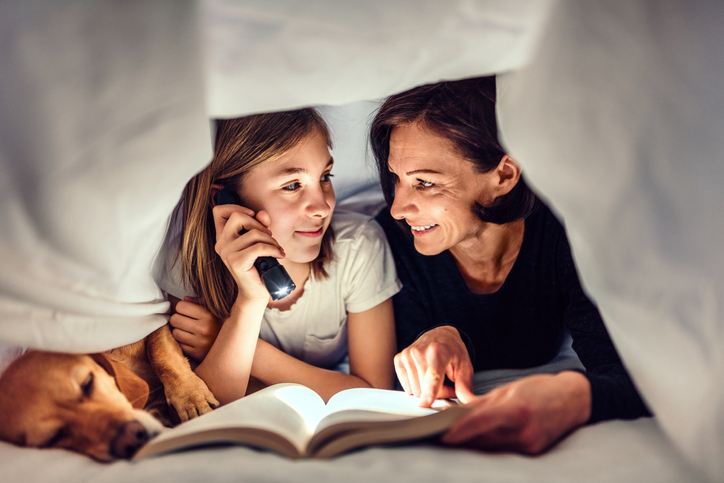
While you can’t make uncertainty go away, you can reduce its influence on your family.
Use a daily schedule to bring structure to your days so kids know generally what to expect during their waking hours. Take a daily walk outside and notice your environment: identify new flowers or leaves emerging, pick a color and name things with that hue or count dogs, bicycles, squirrels, etc. This is the time to help your kids learn how to manage their upsets by listening to their concerns, validating what you hear and figuring out together how to move forward.
Read more blog posts:
- How to Transform Anxiety in Kids with ADHD to Excitement
- Negative Memory Bias and ADHD: Tips to Help Kids and Youth with ADHD Remember the Positives
- Beyond ADHD Pandemic Burnout: How to Help Your Family Regroup and Find Strength
https://drsharonsaline.com/product/home-seminar/
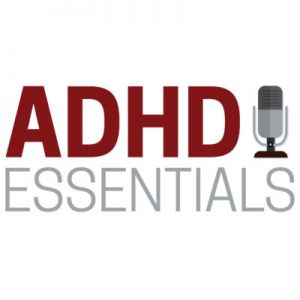

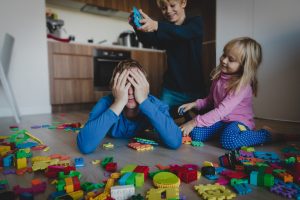
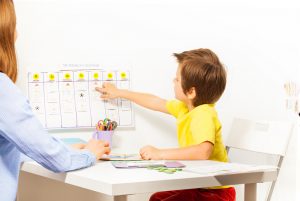
 Take time to answer kids’ questions about COVID 19 with facts and honesty. They are scared and confused and need you to clarify what’s happening. They seek reassurance that you’re taking care of their safety and may want to talk about how to maintain connections to their friends and extended family members. During this strange and frightening time, remember to take care of yourself so you’ll be available to take care of others. Reach out to folks for support but edit your phone conversations so you’re not discussing distressing content in front of your kids.
Take time to answer kids’ questions about COVID 19 with facts and honesty. They are scared and confused and need you to clarify what’s happening. They seek reassurance that you’re taking care of their safety and may want to talk about how to maintain connections to their friends and extended family members. During this strange and frightening time, remember to take care of yourself so you’ll be available to take care of others. Reach out to folks for support but edit your phone conversations so you’re not discussing distressing content in front of your kids. Mental health days can be very beneficial to kids for a much-needed break from the stress of school, particularly with kids who have ADHD, learning disabilities or high functioning ASD for whom school can be their hardest area of functioning.
Mental health days can be very beneficial to kids for a much-needed break from the stress of school, particularly with kids who have ADHD, learning disabilities or high functioning ASD for whom school can be their hardest area of functioning.
